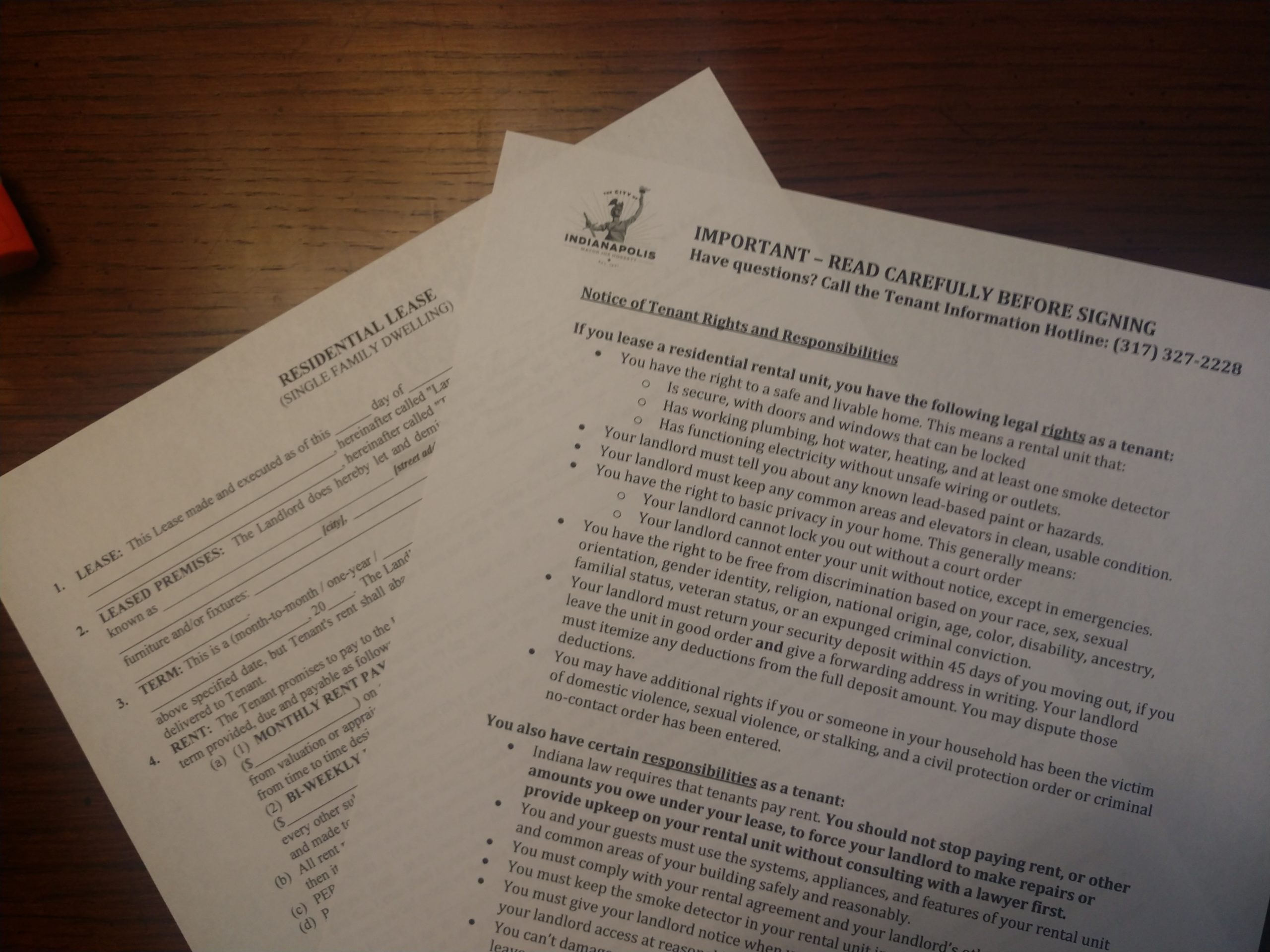New(er) Laws affecting Marion County Landlords
On February 24, 2020, the Indianapolis City Council passed a set of proposals pushed by Mayor Joe Hogsett regarding Marion county residential landlords and renters. These new ordinances took effect July 1, 2020. **Please note, this article is for residential landlords, not commercial***
Proposal 40 sets aside $250,000 of the city’s budget to be used for legal services related to tenants’ rights. Proposal 41 (1) prohibits landlords from taking retaliatory action against tenants, (2) requires landlords to give renters “notice of their rights and responsibilities”, and (3) prohibits discrimination based on expunged evictions. More information on the required notice and the purpose behind Proposal 41 can be found on Indianapolis’ website. Click here if you need a copy of the required notice of Tenant’s Rights and Responsibilities, which the city has provided in multiple languages.
While the intent of the proposals is positive, this author believes proposal 41 will have the unintended consequence of increased litigation surrounding evictions. Litigation that will be sparked by tenants improperly asserting retaliation claims against landlords who file evictions for nonpayment of rent or other valid reasons. Specifically, Proposal 41 puts a rebuttable presumption of retaliation if a landlord files an eviction within 60 days after a tenant:
- Calls the Tenant Information Hotline;
- Seeks or obtains legal or non-legal assistance in connection with the tenant’s legal rights under Indiana law, including but not limited to Indiana Code Chapters 32-31-7 and 32-31-8;
- Communicates with the Department of Business and Neighborhood
- Services to report a landlord’s violation of the requirements of Section 103 of this Chapter;
- Requests an inspection or other communication, or an attorney’s request for inspection or other communication on the tenant’s behalf, with the Marion County Public Health Department concerning the conditions of the tenant’s rental unit; or
- Communicates with the Department of Business and Neighborhood Services in connection with the Indianapolis Landlord Registry established under Chapter 851 of the Revised Code.
In many cases, landlords and their property managers will file evictions without ever even knowing a tenant has called the information hotline, sought legal assistance, or communicated with the Department of Business and Neighborhood. With the new law in place, landlords will now have to defend against a presumption of retaliation when those eviction filings happen to fall within 60 days of an event the landlord never knew occurred. Landlords and property managers should document all events and have established ledgers and account statements to ensure any counterclaim of a retaliatory eviction filing can be quickly refuted.
If you have questions about this, landlord/tenant matters, foreclosure processes, or any other general real estate matter in Indiana, please call Rollins Law Group at 317-558-9677 or contact us online for a free consultation.
These materials are intended for general information purposes only. Accordingly, they do not and are not intended to constitute legal advice or legal opinion. You should consult with legal counsel to determine how laws or decisions discussed herein apply to your specific circumstances.

